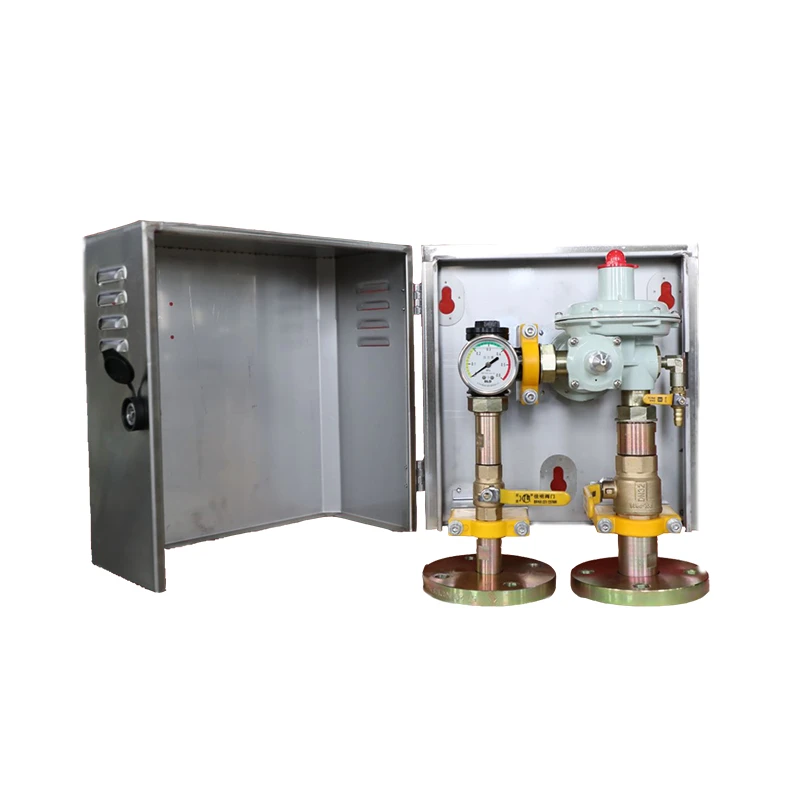
Nov . 17, 2024 02:02
Back to list
مبادل حراري
Understanding Heat Exchangers An Essential Component in Thermal Management
Heat exchangers are vital devices used in various industries to transfer heat between two or more fluids. They play a critical role in increasing energy efficiency and managing temperature processes across diverse applications, from HVAC systems to industrial manufacturing.
What is a Heat Exchanger?
At its core, a heat exchanger is designed to transfer thermal energy between two or more fluids that are at different temperatures. The fluids can be separated by a solid wall to prevent mixing or they can be in direct contact. The primary purpose of a heat exchanger is to efficiently transfer heat, ensuring that one fluid is warmed while the other is cooled.
Types of Heat Exchangers
There are several types of heat exchangers, each suited for specific applications and operational requirements. The most common types include
1. Shell and Tube Heat Exchangers Consisting of a series of tubes, these heat exchangers utilize one fluid flowing through the tubes and a second fluid flowing around the tubes within a shell. They are widely used in oil refineries and chemical processing.
2. Plate Heat Exchangers These consist of multiple thin plates that create channels for fluids to flow through. They are compact, efficient, and ideal for applications where space is limited.
3. Air Cooled Heat Exchangers These use ambient air to cool the fluids, offering a solution where water is scarce. They are commonly found in power plants and refrigeration systems.
4. Double-Pipe Heat Exchangers A simpler design where one pipe is placed inside another, allowing one fluid to flow through the inner pipe and the other through the annular space between the pipes.
.
Working Principle
مبادل حراري

The fundamental operation of a heat exchanger is based on the second law of thermodynamics, which states that heat naturally flows from a hotter object to a cooler one. As the hot fluid flows into the heat exchanger, it transfers heat to the cooler fluid. The efficiency of this process depends on several factors, such as the temperature difference between the fluids, the surface area available for heat transfer, and the flow arrangement (counterflow, parallel flow, or crossflow).
Applications of Heat Exchangers
Heat exchangers are used across a myriad of industries
- HVAC Systems In heating, ventilation, and air conditioning, heat exchangers are crucial for maintaining comfortable indoor environments while optimizing energy use.
- Power Generation In thermal power plants, they play a vital role in transferring heat from the combustion gases to water, converting it to steam, which drives turbines to produce electricity.
- Food Processing Heat exchangers are employed to pasteurize milk and other products, ensuring safety and extending shelf life by killing harmful bacteria without compromising quality.
- Chemical Processing They are essential for controlling reaction temperatures and achieving product separation in various chemical reactions.
Energy Efficiency and Sustainability
As industries strive to minimize energy consumption and environmental impact, heat exchangers contribute significantly to sustainability efforts. They allow for the recovery and reuse of waste heat, improving overall system efficiency. For instance, in an industrial setting, waste heat from exhaust gases can be redirected to preheat incoming materials, reducing the energy required from external sources.
Conclusion
Heat exchangers are indispensable in modern thermal management, embodying the principles of energy efficiency and sustainability. With various designs and applications, they help industries optimize processes, reduce costs, and minimize environmental impact. As technology continues to evolve, the development of even more efficient heat exchangers will play a crucial role in future energy applications, paving the way for a more sustainable world. Understanding their function and application is essential for anyone involved in engineering, manufacturing, or energy management.
Latest news
-
Safety Valve Spring-Loaded Design Overpressure ProtectionNewsJul.25,2025
-
Precision Voltage Regulator AC5 Accuracy Grade PerformanceNewsJul.25,2025
-
Natural Gas Pressure Regulating Skid Industrial Pipeline ApplicationsNewsJul.25,2025
-
Natural Gas Filter Stainless Steel Mesh Element DesignNewsJul.25,2025
-
Gas Pressure Regulator Valve Direct-Acting Spring-Loaded DesignNewsJul.25,2025
-
Decompression Equipment Multi-Stage Heat Exchange System DesignNewsJul.25,2025

